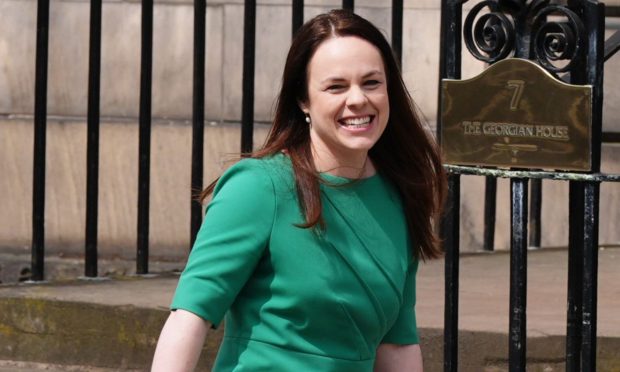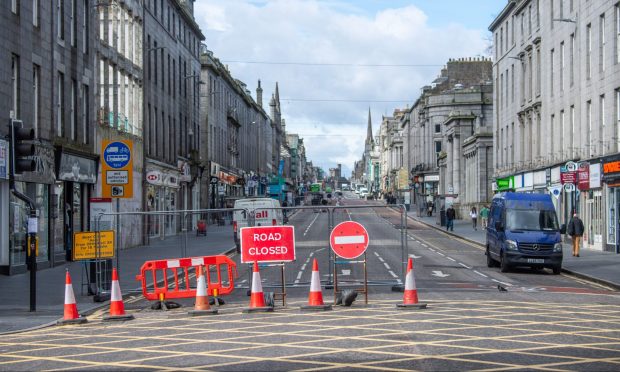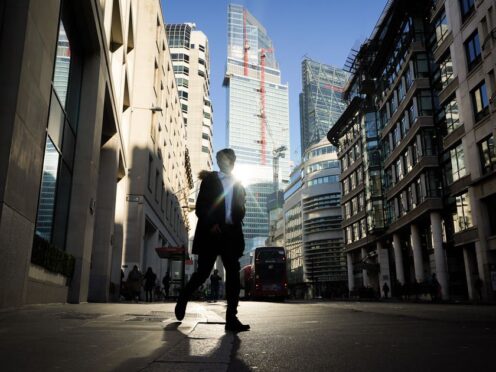‘Growth in a time of crisis’ was the overarching theme of the annual meeting between the World Bank and International Monetary Fund in Washington DC a few weeks ago as nations around the world seek to tackle the global cost crisis.
A wide range of leading economists and policymakers deliberated how countries can best build back to a sustainable, resilient, and inclusive economic recovery and what is needed to support private investment, especially in small and medium enterprises, and create jobs in developing countries.
These challenges will no doubt be in front of Deputy First Minister John Swinney’s mind when he announces Scottish Government tax and spending plans for the coming year on Thursday.
The draft budget comes against a backdrop of extreme fiscal pressure across the country with rising inflation meaning it will, understandably, be focusing on how best to maintain the provision of sustainable public services, particularly for those most impacted by the cost-of-living crisis.
READ: John Swinney talks of ‘difficult decisions’ ahead of Scottish budget
Achieving sustainable, inclusive growth in this particular time of crisis must be viewed as a collective and cross-party ambition.
In this very spirit, it was encouraging to hear the First Minister, Financial Secretary to the Treasury Andrew Griffith, and Scottish Labour leader Anas Sarwar espouse the importance of growth at TheCityUK’s annual conference, supported by Scottish Financial Enterprise, in Edinburgh at the start of the month.
Time to turn around Scotland’s performance
The challenge now is to turn this commitment into action because the economic context north of the border has a number of particular weaknesses.
Scotland’s growth rate has, despite commitments from successive Holyrood administrations, underperformed our nearest neighbours and our real terms productivity has remained stagnant, lagging behind the rest of the UK and well behind that of other advanced European economies of similar size.
In seeking to address these challenges we must underpin any future approach with measures which can stimulate sustainable economic growth for the long-term.
Ultimately our ability to improve living standards and the provision and funding of public services, particularly for those in lower- and middle-income households, can only be achieved if we successfully increase our tax base.
That is why, early in the new year, SFE, along with other industry bodies will publish a targeted manifesto for growth, a constructive yet impactful document, that outlines a range of key priorities for Government to consider as they weigh up policy interventions in the coming period.
Increased taxes not the answer
This manifesto will place the private sector, from SMEs to multinational companies, at the heart of its proposition.
Nearly 80% of people employed in Scotland are in the private sector, generating around £300 billion in annual turnover.
These are the drivers of increased growth and they must be supported to achieve it so whilst we recognise the importance of funding public services, this cannot be achieved simply by increasing taxes on the private sector.
It must come a proper strategy for sustainable growth and significant improvement in productivity both in the private and public sectors.
Scotland must be viewed as an attractive place to work, live and invest.
The Scottish Government has control over levers such as property and incomes taxes, and whilst I fully recognise the requirement to protect vital public services, careful consideration must be given to balancing this against inadvertently impacting our ability to retain and attract people, particularly young and aspirational professionals.
This is, of course, particularly crucial given Scotland faces the significant projected structural challenge of a reducing working-age population.
Focus on energy transition
Addressing the pressing climate emergency remains an overriding priority for businesses and governments alike.
There is significant economic growth potential in supporting businesses in traditional sectors to decarbonise their existing practices as well as accelerating energy transition, through innovation and high-value manufacturing, toward new and green energies.
Scotland has the critical mass of a world-class energy industry alongside unrivalled natural assets to be a truly global world leader in offshore wind and blue and green hydrogen.
Government has a key role to play in demystifying and incentivising the investment opportunities so net zero targets can be realised in the most economically advantageous way possible.
Government has a key role to play in demystifying and incentivising the investment opportunities so net zero targets can be realised.”
The Scottish financial services industry, employing over 145,000 people, has a key role to play, directly and indirectly, in supporting all of these priorities.
Our banking, life and pensions, insurance, and asset management sectors support high-wage and high-value jobs, they support private sector enterprises in their growth ambitions and unlock pools of capital for significant infrastructure spending as part of our drive toward a low carbon economy.
We recognise our vital economic role and societal responsibilities and delivering on these has never been more important.
As the World Bank and IMF put it; the time of crisis is now. The need for interventions that engender sustainable and inclusive growth for the long-term is, therefore, long overdue.
Sandy Begbie is chief executive of Scottish Financial Enterprise












